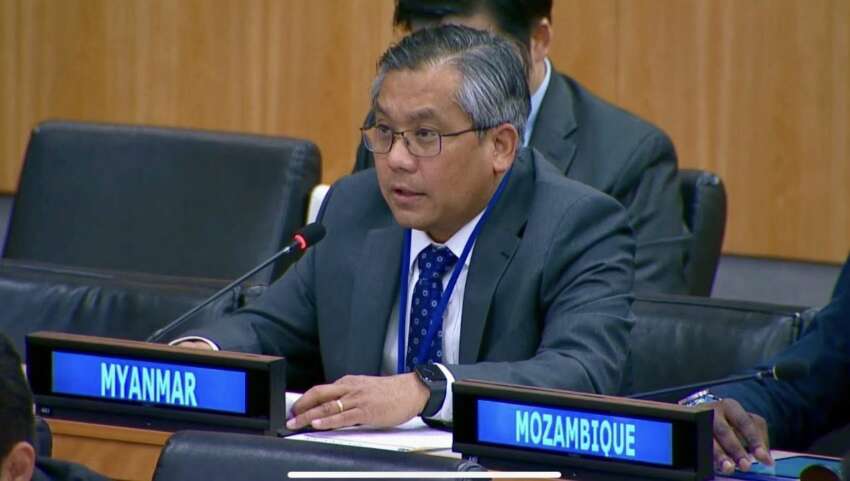
Myanmar’s Permanent Representative to the United Nations, Ambassador Kyaw Moe Tun, has issued a warning about the terrorist military council’s potential misuse of nuclear energy. This warning was delivered during the third meeting of the Preparatory Committee for the 2026 Nuclear Non-Proliferation Treaty Review Conference at the UN headquarters in New York. The ambassador emphasized the serious concerns regarding the military council’s approach to nuclear technology and its implications for regional security.
Ambassador Kyaw Moe Tun highlighted the military council’s demonstrated inability to handle emergency situations responsibly, citing their misuse of humanitarian aid following the recent earthquake disaster. He specifically pointed out that the military council had misappropriated jet fuel intended for humanitarian assistance to conduct 225 airstrikes against civilian populations in the aftermath of the earthquake. This pattern of behavior, he argued, raises serious concerns about their potential handling of nuclear technology.
The military council has signed an agreement with Russia to construct a 100-megawatt nuclear reactor, and implementation of this project is reportedly ongoing. The ambassador emphasized that the military council, which has shown no respect for international law or cooperation with international organizations, cannot be trusted to comply honestly with Article 3 of the Nuclear Non-Proliferation Treaty regarding cooperation with the International Atomic Energy Agency (IAEA). He stressed that their track record of violating international norms and human rights makes them an unreliable partner for nuclear cooperation.
The ambassador strongly recommended that the international community should only consider nuclear cooperation with Myanmar after the complete elimination of the military dictatorship and the restoration of democracy. He emphasized the need for unified international pressure to prevent the military council’s misuse of nuclear technology and to support the return of democratic governance. This stance reflects the broader concern about the military council’s pattern of using technological and humanitarian resources as weapons against its own people, highlighting the critical importance of ensuring that nuclear technology does not become another tool for oppression in their hands.



